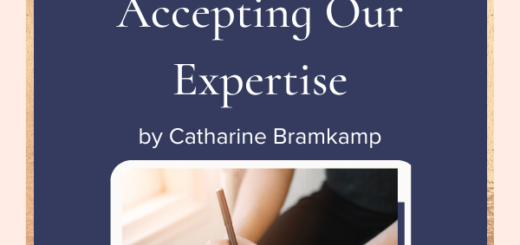Breaking through Writers Block by Kay Keppler
Join me in giving a warm welcome back to our monthly columnist, author Kay Keppler, as she shares her tips with us on breaking through writers block. Enjoy!
***
You know how hard writing is. Just finding the time is challenging. Even if you get in the chair every day, doing the work requires a lot of thought. And sometimes the words don’t come easily. Or at all.
You want to write the perfect novel? No wonder you can’t get it done.
A lot of blogs, articles, and books have been dedicated to overcoming writers block. Hillary Rettig, in The 7 Secrets of the Prolific, outlines reasons for not writing, starting with problems with the project (you’re sick of it, you wrote yourself into a corner, you’re overwhelmed by it), fear of failure or success, perfectionism, and competing priorities for time.
Her first piece of advice: don’t go to a place of shame (“Don’t be so lazy!” “You’ll never get published, anyway!”), but understand that productivity is constantly under siege from many directions. She has a lot of good strategies for problem solving so that you can do the work you want to do, starting with:
- Identify and overcome perfectionism
- Manage your time
- Optimize your writing process
- Cultivate resilience in the face of rejection
If your issues with not writing are systemic, or several big things are conspiring to keep you away from the keyboard, you might want to check out this book, or another like it. Someone may have just the tips, tricks, and attitude adjustment you’re looking for.
You just need to find your creative juice? Try what works.
If you don’t need therapeutic intervention and simply want to fire up those sluggish synapses, thinking out loud can clarify your ideas. Explain your book to the mirror as if you were describing it to a person you don’t know very well. (Even better: explain it to a real person you don’t know very well.) Talk into a tape recorder so you don’t lose track of your ideas. Then transcribe the tape. You might generate enough sentences that you can move on.
You might try retyping other writers who have strong voices—such as Gertrude Stein or Ernest Hemmingway—or works with strong rhythms—such as a Keats poem or Winnie the Pooh. Hunter Thompson is said to have spent a lot of time and paper retyping Fitzgerald and Hemingway to “feel the music” in his fingers. Of course, Thompson reportedly had a great deal of pharmaceutical support while he worked, so no one really knows what tune—or operatic chorus—he was listening to.
Sometimes just reading a good book can break up that writer’s block. Real music—not just the music in your head—can help, too, whether it’s the Beatles, B.B. King, or Beethoven.
A change of scene—even if it’s a boring scene—can work wonders. Margaret Drabble has said:
A featureless room can be liberating. I’ve good memories of the Station Hotel in Peterborough and the Westin Harbour Castle, Toronto. I wrote a lot in both of these buildings.
Drabble also says that mornings of peace are imperative:
Any conversation between waking and working can be fatal. Before embarking on creative work or on a longish essay, I do need to know I am alone, and in the morning can go straight from my bed to my machine (after coffee) without speaking to anyone, and be there alone for at least two hours.
You couldn’t get moving with any of these ideas? Try them all.
None of these ideas will necessarily work for you. Don’t panic. Try them in pairs, or all of them together—or work out your own. Sooner or later the magic will return. I guarantee it.
***
ABOUT THE AUTHOR
KayKeppler (www.kaykeppler.com) is an author Zero Gravity Outcasts, Betting on Hope, Gargoyle: Three Enchanting Romance Novellas, and editor of fiction and nonfiction –Angel’s Kiss and Outsource It! She lives in northern California. Contact her here at Writer’s Fun Zone in the comments below, or at kaykeppler@yahoo.com to ask questions, suggest topics, or if you prefer, complain.









[…] http://writersfunzone.com/blog/2014/08/21/breaking-writers-block/ […]